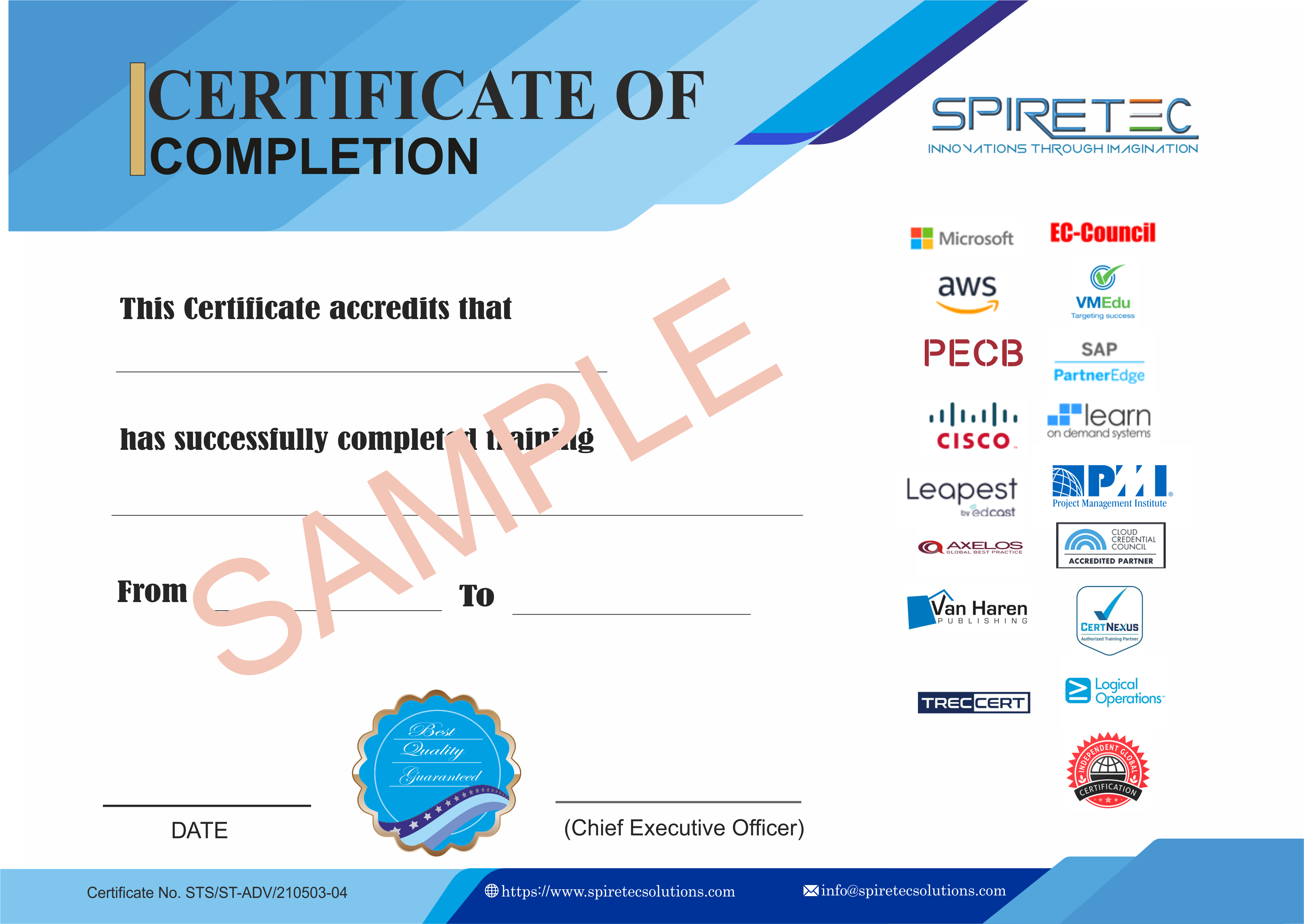The CompTIA Data+ course is tailored to provide learners with the essential skills required to analyze, interpret, and transform data into meaningful insights. This comprehensive program covers a broad spectrum of topics, from fundamental data concepts to advanced data governance and quality control.
-
Module 1: Data Concepts and Environments – Introduces learners to data schemas, dimensions, types, structures, and file formats, forming the foundation for understanding the data landscape.
-
Module 2: Data Mining – Focuses on data acquisition, cleansing, profiling, manipulation, and optimization techniques, essential for effective data preparation.
-
Module 3: Data Analysis – Delves into descriptive and inferential statistical methods, various types of data analysis, and the tools used for analyzing data.
-
Module 4: Data Visualization – Teaches the creation of impactful reports and dashboards, enabling learners to present data insights effectively.
-
Module 5: Data Governance and Quality – Covers critical aspects of data governance, quality control, and master data management, ensuring data integrity and compliance.
Earning the CompTIA Data+ certification through this course validates a professional's proficiency in data fluency, making it an invaluable resource for those seeking to advance in the field of data analysis.
Course Prerequisites
To ensure a successful learning experience in the CompTIA Data+ DA0-001 course, the following prerequisites are recommended:
-
Basic understanding of computer functions and common applications (e.g., word processing, spreadsheets, internet browsing).
-
Familiarity with fundamental concepts of databases and data storage.
-
Introductory mathematical proficiency, particularly in basic statistics, to comprehend statistical methods in data analysis.
-
Awareness of core IT concepts, including hardware, software, and networking, to contextualize data environments.
-
Some exposure to data handling or business analysis is beneficial but not mandatory.
-
A keen interest in developing data analysis and management skills.
While these prerequisites aim to establish a foundation, the course is designed to be accessible to beginners in data analysis. Motivated learners with a strong willingness to engage with the material are encouraged to enroll, as the course offers comprehensive lessons and resources to guide participants through the essential aspects of data concepts, mining, analysis, visualization, and governance.
Target Audience
The CompTIA Data+ DA0-001 course is designed for professionals seeking to build or enhance their data management and analytics skills.
Target audience and job roles include:
-
Data Analysts
-
Business Analysts
-
Marketing Analysts
-
Operations Analysts
-
Entry-level Data Scientists
-
IT Professionals transitioning into data roles
-
Database Administrators expanding their analytics expertise
-
Professionals involved in data decision-making or interpretation
-
Recent graduates in computer science, IT, or business with a focus on analytics
-
Project Managers handling data-driven projects
-
Data Consultants offering strategic insights and recommendations
-
Data Governance and Quality Officers
Course Outline
Module 1: Data Concepts and Environments
-
Identify basic concepts of data schemas and dimensions
-
Compare and contrast different data types
-
Compare and contrast common data structures and file formats
Module 2: Data Mining
-
Explain data acquisition concepts
-
Identify common reasons for cleansing and profiling datasets
-
Given a scenario, execute data manipulation techniques
-
Explain common techniques for data manipulation and query optimization
Module 3: Data Analysis
-
Given a scenario, apply the appropriate descriptive statistical methods
-
Explain the purpose of inferential statistical methods
-
Summarize types of analysis and key analysis techniques
-
Identify common data analytics tools
Module 4: Visualization
-
Given a scenario, translate business requirements to form a report
-
Given a scenario, use appropriate design components for reports and dashboards
-
Given a scenario, use appropriate methods for dashboard development
-
Given a scenario, apply the appropriate type of visualization
-
Compare and contrast types of reports
Module 5: Data Governance Quality and Controls
-
Summarize important data governance concepts
-
Given a scenario, apply data quality control concepts
-
Explain master data management (MDM) concepts
-
Explain master data management (MDM) concepts







 Live Online Training (Duration : 40 Hours)
Live Online Training (Duration : 40 Hours)
